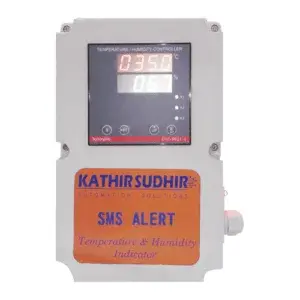In today’s fast-paced world, where information travels at lightning speed, businesses need to stay connected with their customers and provide timely updates and notifications. One way to accomplish this is through an event-based alert system tailored to the specific requirements of customers. By implementing a customized alert system, businesses can enhance customer engagement, improve communication, and ultimately boost customer satisfaction. In this blog post, we will explore the benefits and implementation of a customized event-based alert system.
Understanding the Importance of Event-Based Alert system
Event-based alerts are notifications triggered by specific events or actions. These alerts can be delivered through various channels, such as emails, text messages, push notifications, or even automated phone calls. They serve as a proactive means of keeping customers informed about important updates, promotions, or changes related to their interactions with a business.
Customized event-based alerts go a step further by tailoring the content and delivery method based on individual customer preferences and requirements. This level of personalization allows businesses to deliver relevant and timely information, ensuring that customers receive notifications that are most meaningful to them.
Benefits of Customized Event-Based Alert system
Enhanced Customer Engagement
By delivering personalized and relevant alerts, businesses can engage customers in a more targeted manner. This helps build stronger relationships and fosters a sense of loyalty, as customers feel valued and attended to.
Improved Communication
Customized event-based alerts enable businesses to communicate important updates, such as product launches, discounts, or changes in service, directly to customers. This direct line of communication minimizes the chances of information getting lost or overlooked, ensuring that customers stay well-informed.
Increased Customer Satisfaction
When businesses provide timely and relevant notifications, customers feel empowered and appreciated. By addressing their specific needs and preferences, businesses can enhance customer satisfaction, leading to repeat business and positive word-of-mouth recommendations.
Personalization
A customized alert system allows businesses to tailor the content and delivery method of notifications to individual customers. This personalization ensures that customers receive alerts in their preferred format and language, increasing the chances of engagement and action.

Implementing a Customized Event-Based Alert System
Data Collection and Segmentation
he first step in implementing a customized alert system is to collect relevant customer data and segment the customer base based on preferences, behaviors, or demographics. This data can be gathered through various channels, including online forms, surveys, or customer interactions.
Define Trigger Events
Identify the events or actions that will trigger the alerts. For example, a trigger event could be a customer making a purchase, reaching a certain milestone, or expressing interest in specific products or services.
Content Creation
Craft informative and engaging content for each type of alert. This content should be relevant to the customer and concise, conveying the necessary information without overwhelming the recipient.
Delivery Method
Determine the most effective delivery methods for each type of alert. Consider the preferences of your target audience and the channels they are most likely to engage with, such as email, SMS, or mobile app notifications.
Automation and Timing
Set up an automated system that triggers and delivers alerts in real-time. Ensure that alerts are sent at appropriate times to maximize their impact without causing annoyance or disrupting the customer’s routine.
Feedback and Iteration
Regularly evaluate the effectiveness of the alert system through customer feedback, analytics, and metrics. Make adjustments as needed to improve the system and ensure it continues to meet customer requirements.
Real-World Examples of Customized Event-Based Alert System
Several businesses have successfully implemented customized event-based alert systems to enhance customer satisfaction and drive engagement. Here are a few examples:
E-commerce Alert system
Online retailers often send customized alerts to customers based on their browsing or purchase history. These alerts can include personalized recommendations, back-in-stock notifications, or exclusive discounts, keeping customers informed and incentivizing repeat purchases.
Financial Institutions Alert System
Banks and financial institutions use customized alerts to notify customers about account activity, such as large transactions, low balances, or upcoming bill payments. These alerts help customers stay on top of their finances and prevent unauthorized activity.
Travel and Hospitality
Airlines, hotels, and travel agencies utilize event-based alerts to provide customers with updates about flight delays, gate changes, or reservation confirmations. These real-time notifications ensure a seamless travel experience and keep customers informed throughout their journey.
Conclusion
In conclusion, a customized event-based alert system offers businesses a powerful tool to improve customer engagement, enhance communication, and boost overall satisfaction. By tailoring alerts to individual customer requirements, businesses can provide timely and relevant information, fostering stronger connections with their customers. Implementing such a system requires effective data collection, segmentation, content creation, and delivery methods. By investing in a customized alert system, businesses can stay ahead of the competition and provide exceptional customer experiences in today’s dynamic marketplace.

